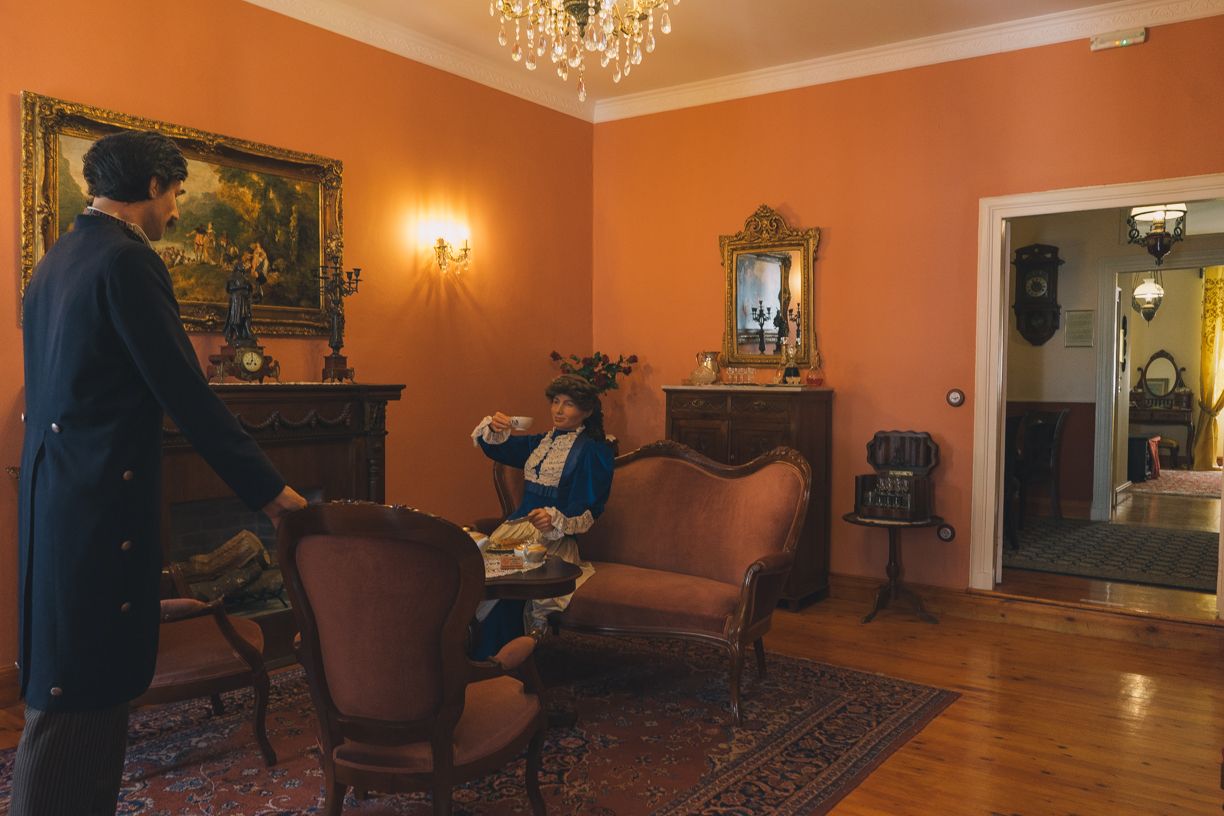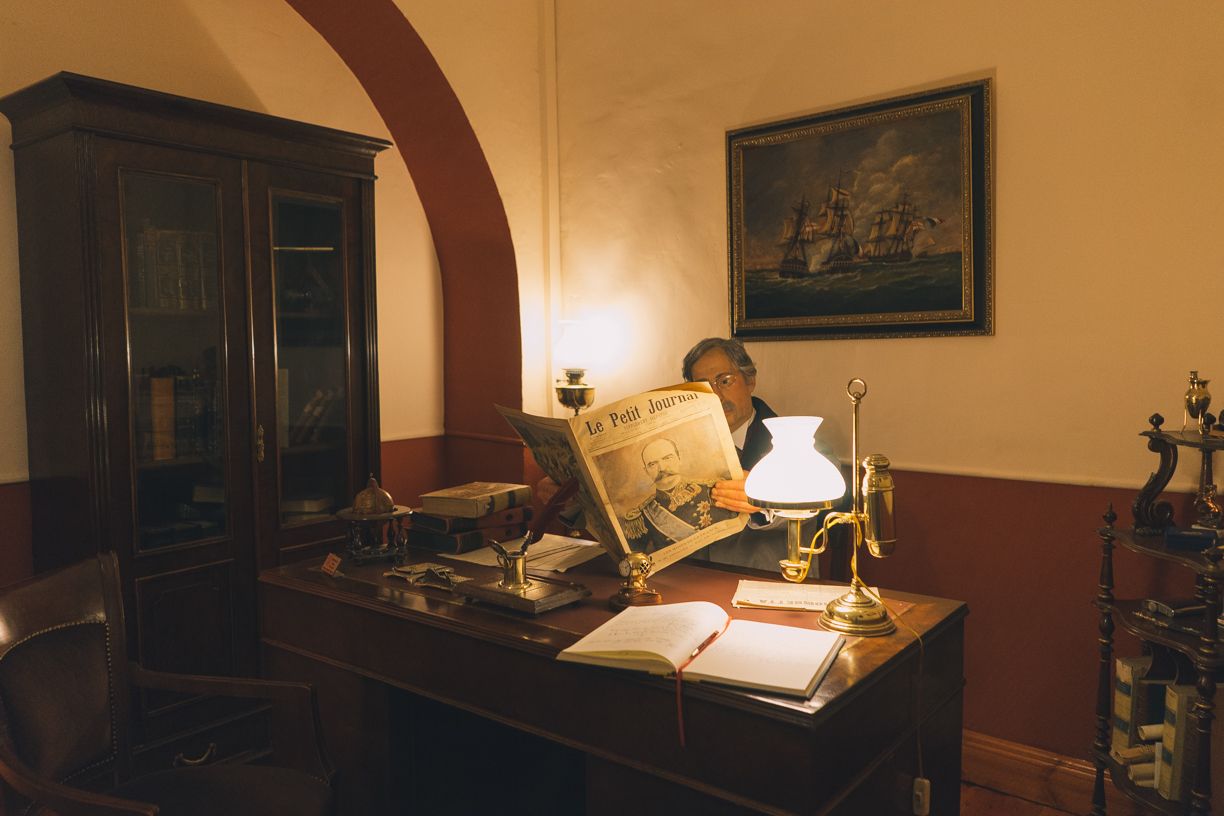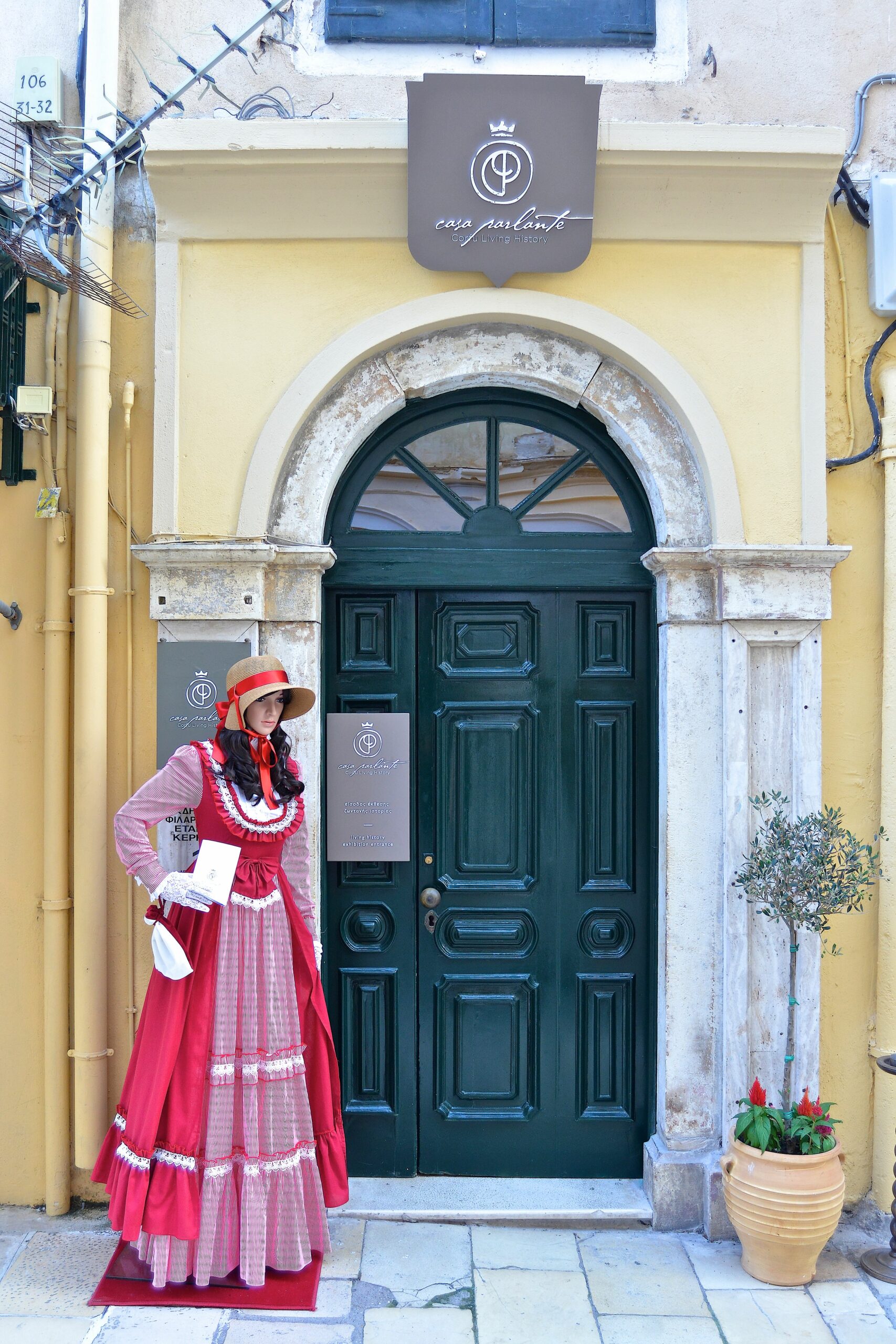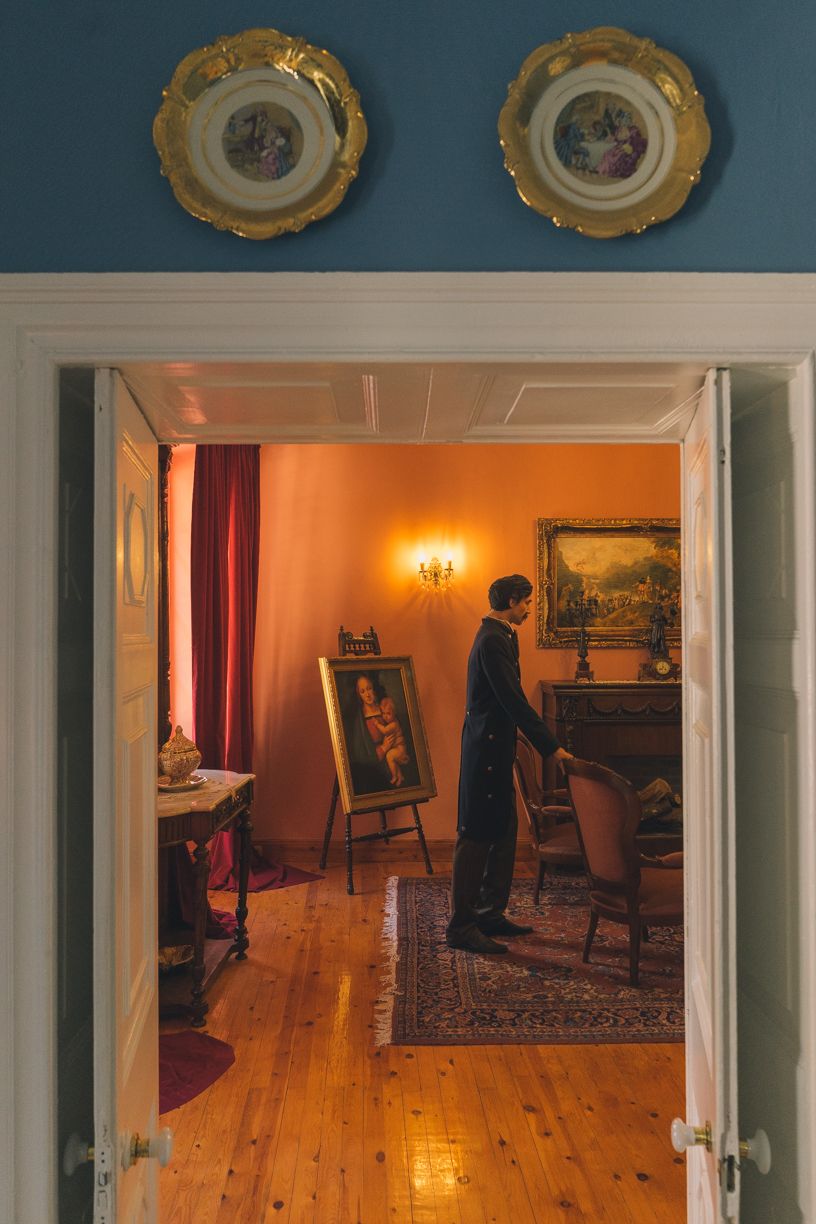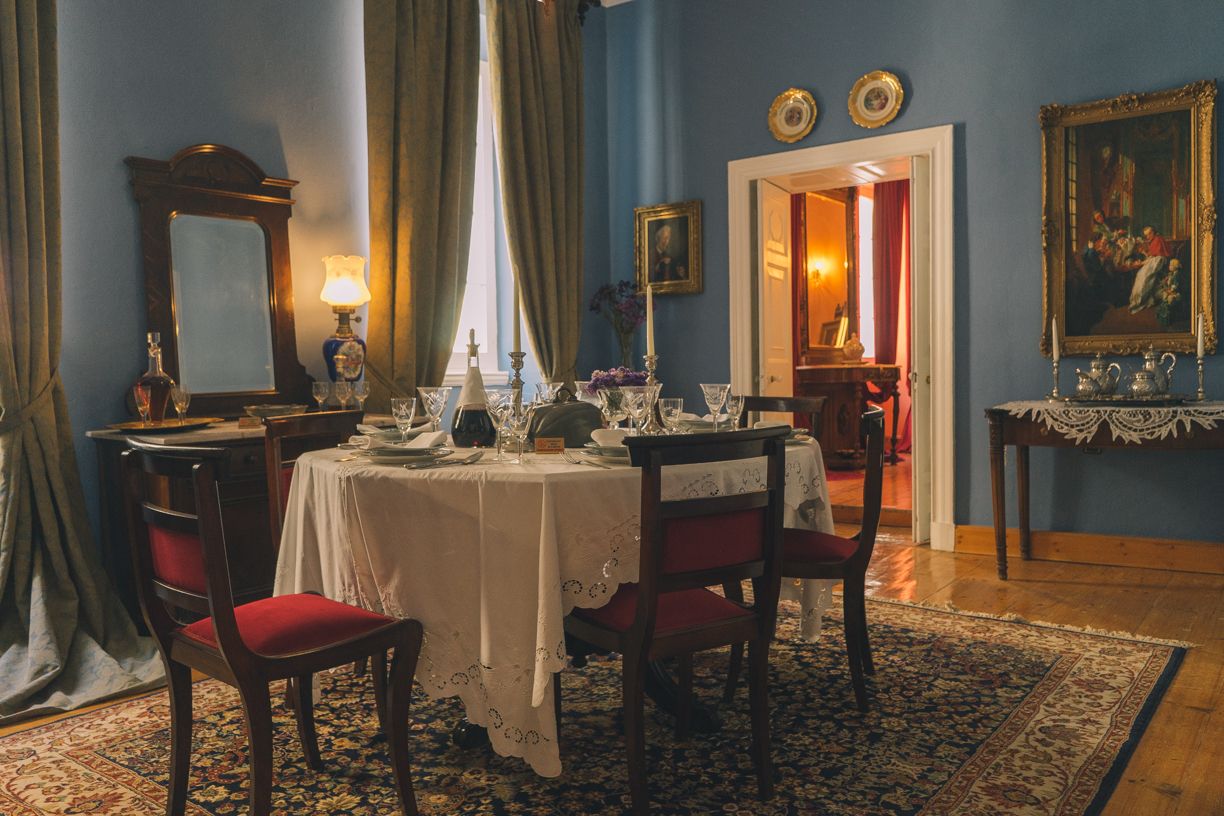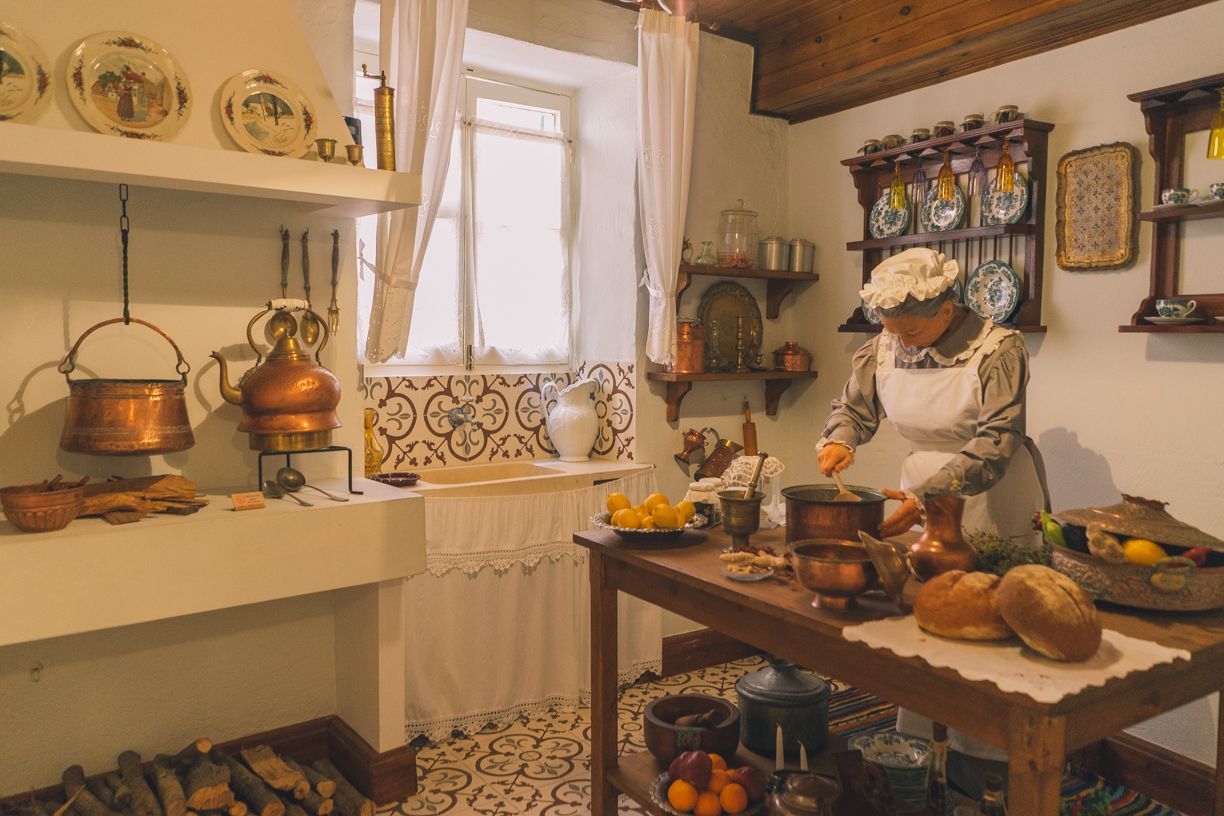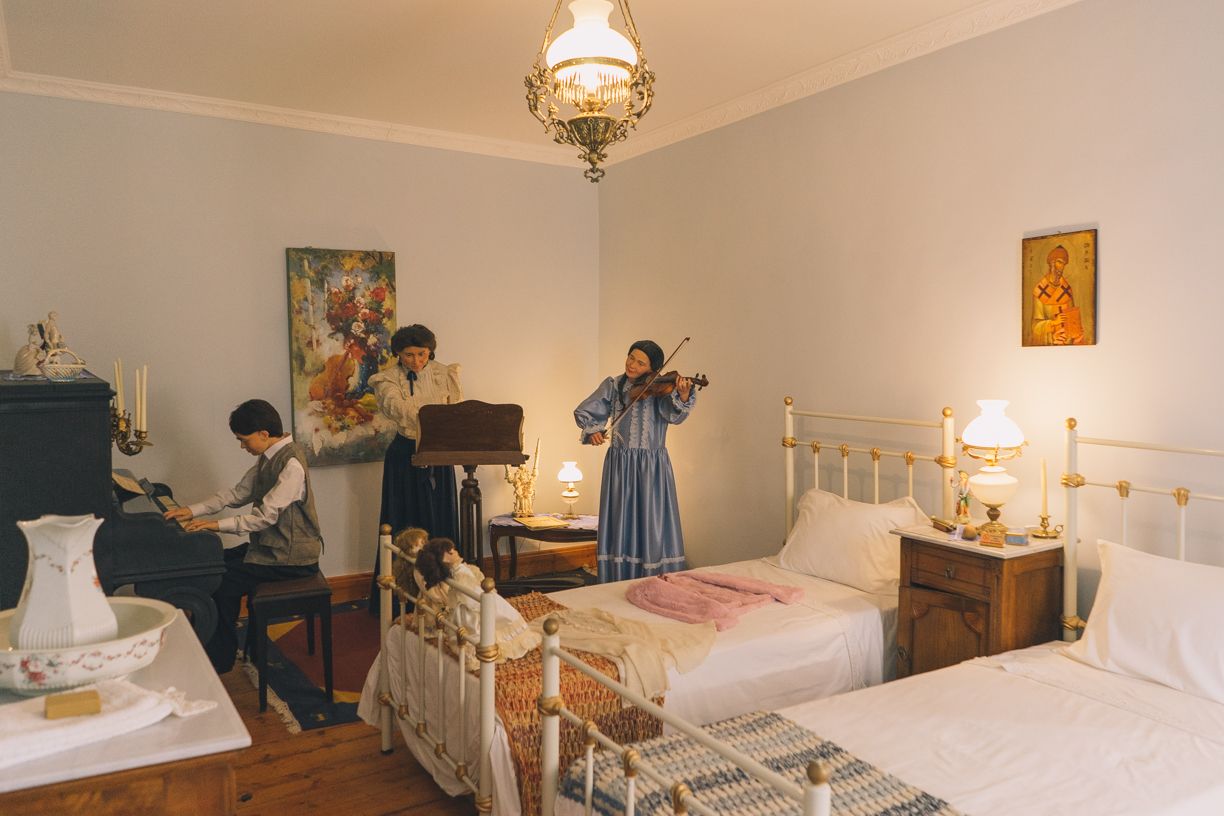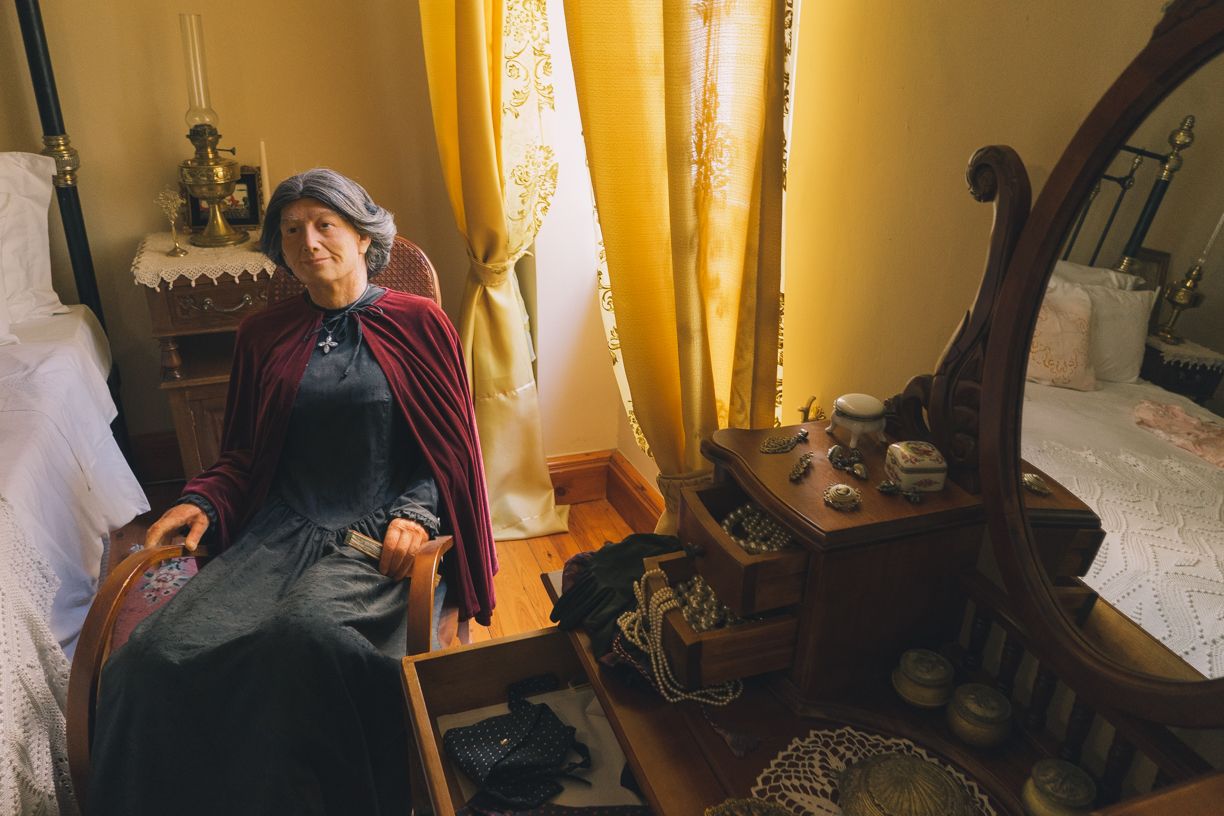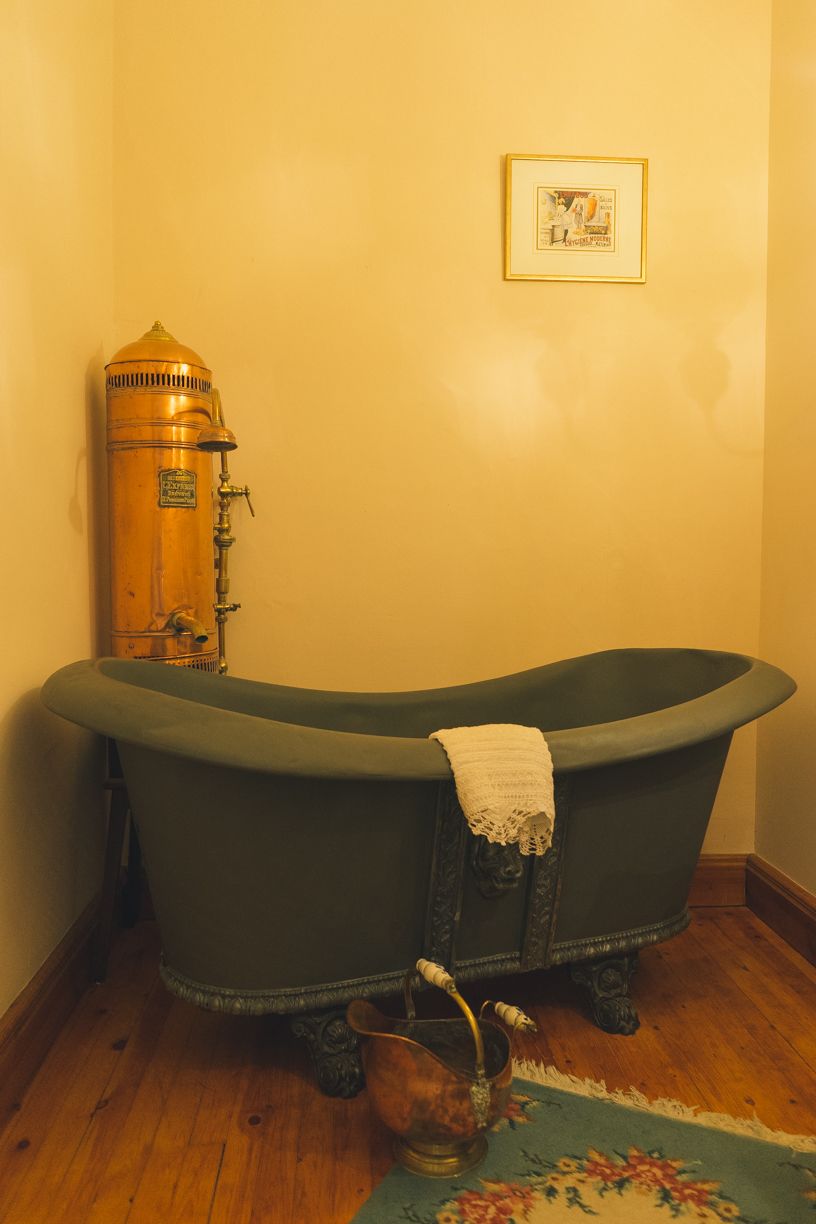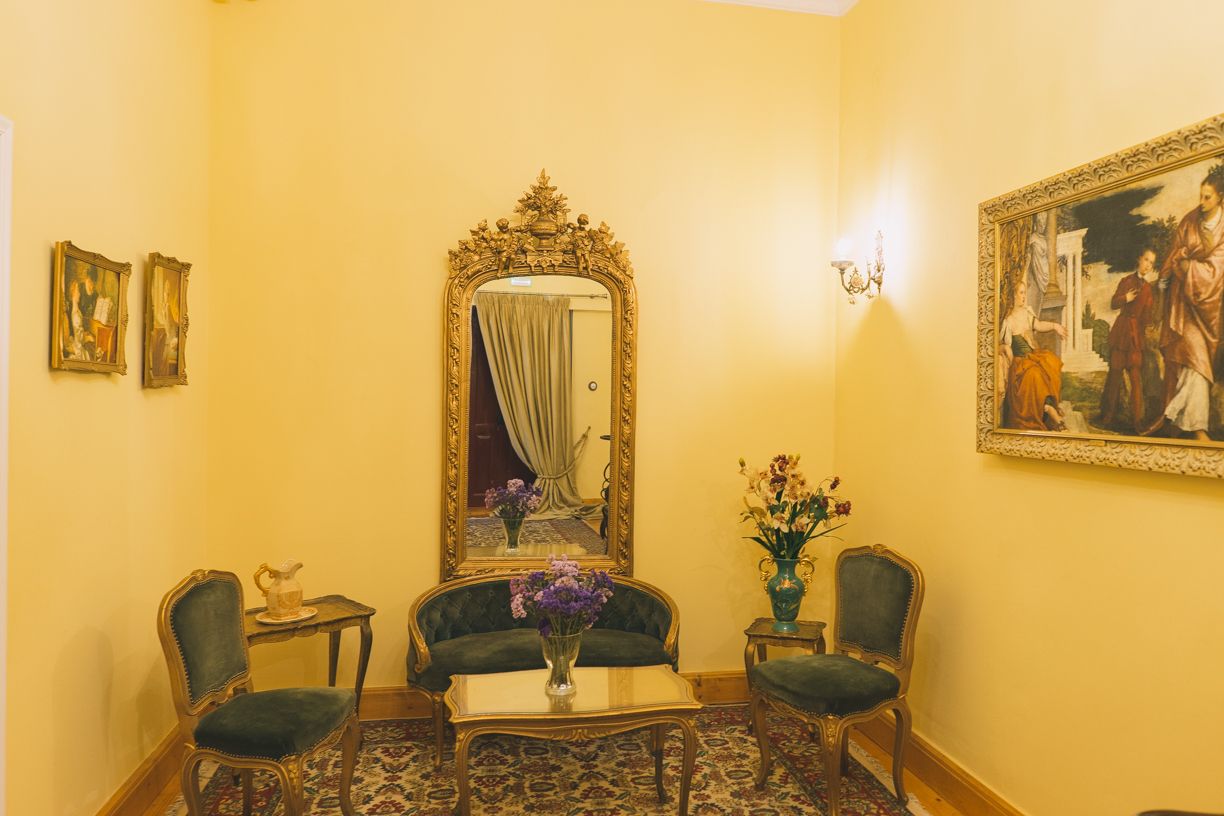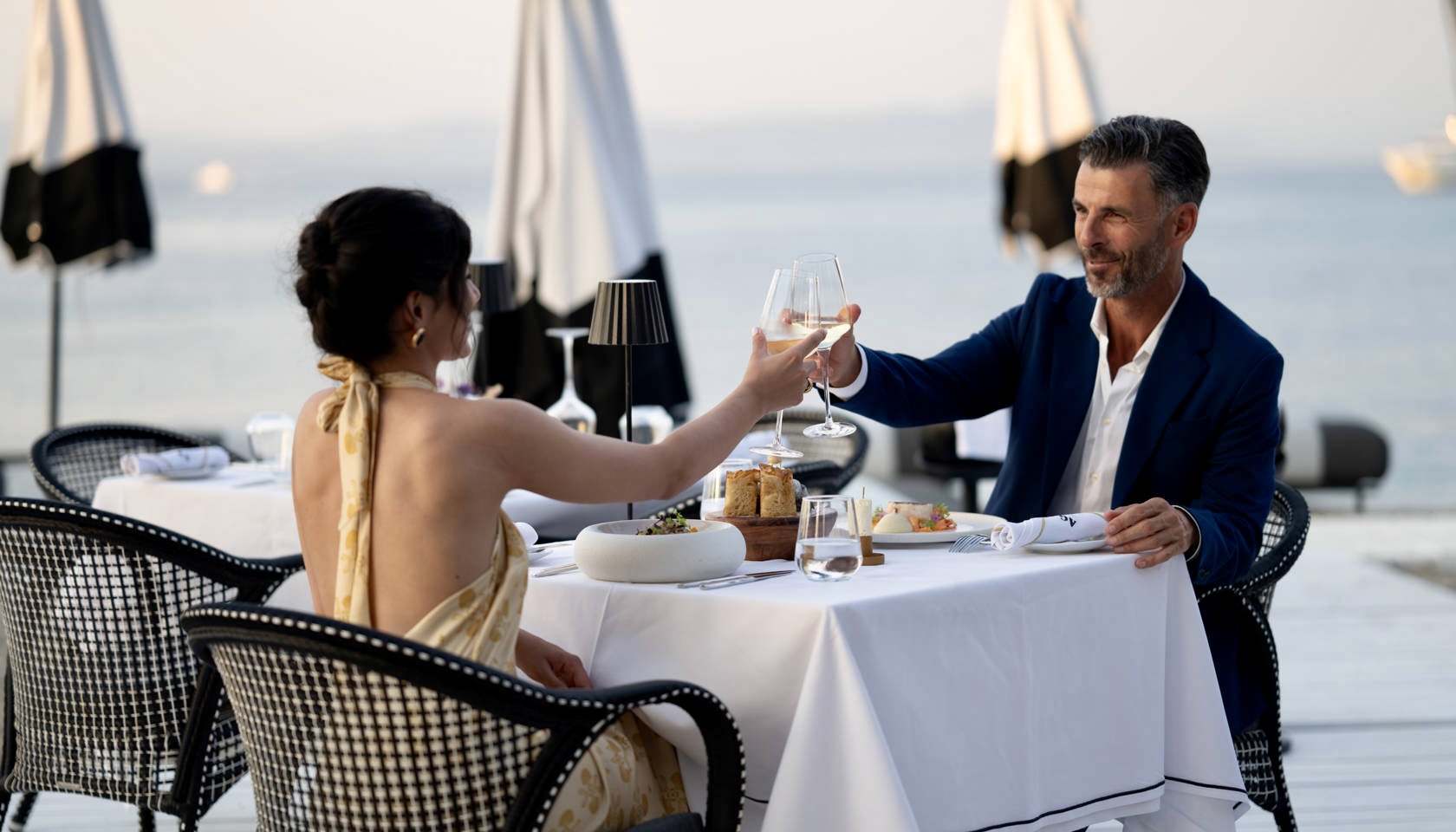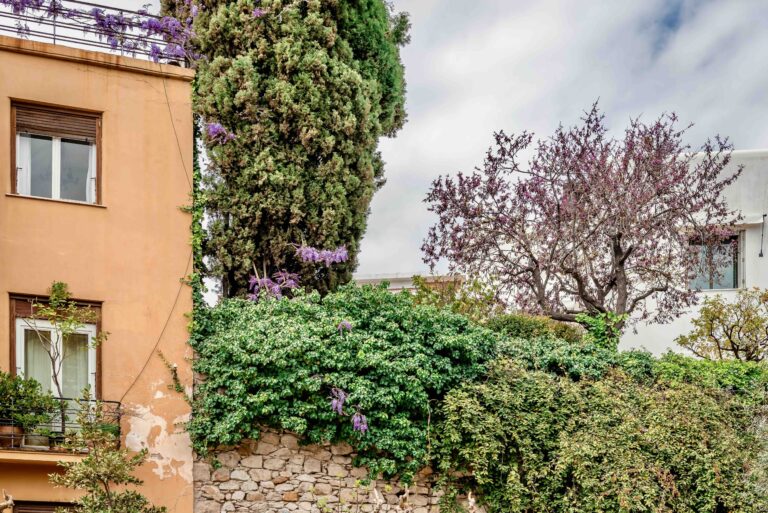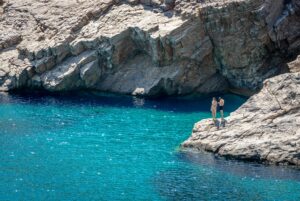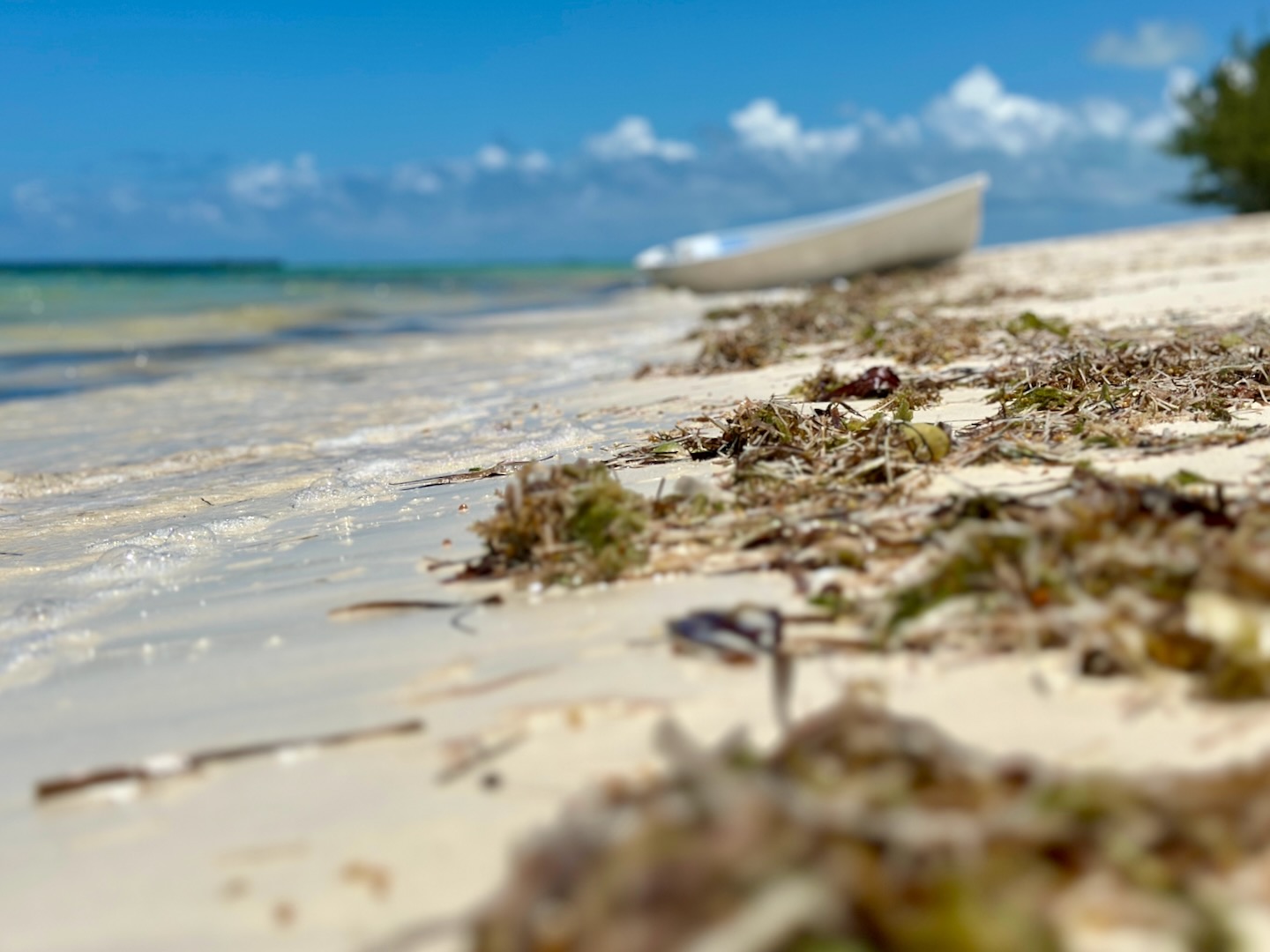What would it have been like to live at noble house of Corfu in the beginning or middle of the 19th century, during the British rule, when the island was the most important centre of the semi-autonomous United States of the Ionian Islands?
It was a time of financial prosperity and thriving arts in Corfu. The various rulers that had passed from the island, the Venetians, the French, the British, had given a cosmopolitan feel to the life of the island. The historic centre of Corfu was expanding. The wealthy families and the noble people of the island lived in neoclassical or older buildings. Life in Corfu of the 19th century certainly was special compared to the rest of Greece.
You can see and hear about life during that time in a very lively manner, by visiting Casa Parlante, the “house that speaks” that is, in the centre of the town of Corfu. It was Katerina Rantou’s and her daughter’s, Theodora Efthimiou, idea. “My father was from Corfu, I’ve spent all my summers here, and I’ve also lived here for a while and I’ve always felt it was a special place. Walking around the “kantounia”, as the cobbled streets of the town are known, we’ve often wandered what life must have been like in these beautiful houses in the 19th century. And we wanted to revive this. We wanted the museum to take you back to the everyday life of another era, for it to be more than a display of objects. We were inspired by other similar museums abroad, and started working,” Katerina Rantou tells Travel.gr.
The project was complete in 2014, as the two women’s original idea managed to secure funding by winning the Greek Entrepreneurship Award in 2013. Now, Casa Parlante has been open for 7 years and it revives a world that no longer exists. The Count, the Countess, their two children, the grandmother and grandfather, as well as their servants all “live” in the neoclassical house on Nikiforou Theotoki street, a centrally located street in the old town, a stone’s throw from the great Spianada square. They are animated robotic figures, wearing period costumes and jewellery, as well as hairstyles of the times.
During the interactive tour you’ll get all the information about small and big details of their life. The visitors have tea and rose liquor with the Countess in a typical Corfu living room of the time, with furniture, paintings and works of art from all over Europe. Then they will visit with the Count in his personal study, they will see the cook in the kitchen, and the other servants in other rooms. All the objects are originals. “Furnishing the house was one of the greatest challenges we faced,” Mrs Rantou explains. “The furniture of that period, either by Corfiot artisans or imported from Europe, were famous. We had to search quite a bit to be able to find the right pieces,” and she adds “it was a lot of hard work in order to find the original colour of the walls».
During our tour we hear music as it’s the time the children are having their music lesson. The society of Corfu was cosmopolitan but strict, so the children had to receive a specific education, they had to address their parents in a specific way. While even the way the noble family and their servants dressed was set according to their social class. This is something that becomes apparent from the fact that there was a separate door for the members of the family and the guests, and another for the servants.
The houses in which the noble families lived, in the town centre, did not stand out so much due to their size, but due to the elegance of their interiors and their functionality. “The large aristocrat mansions were outside the centre. The neoclassical and older houses in the centre where not only used as homes but also as professional spaces. It is where the trade and business agreements were made,” Mrs Rantou says, adding that what makes these houses special is how ergonomically, as we would say today, the spaces have been designed. “Nothing seems to be redundant or missing.”
Casa Parlante, like the rest of the tourist sector in our country, had to deal with the consequences of the restrictive measures taken due to the pandemic. “Especially the loss of the Easter period last year was a heavy blow for the island,” Mrs Rantou says. “The same is true about the limited arrivals from Britain this past summer. However, we are pleased because the island’s features that combine natural beauty, culture and history, have always attracted both Greek and foreign visitors. We wanted to promote a side of Corfu in a different way”.



